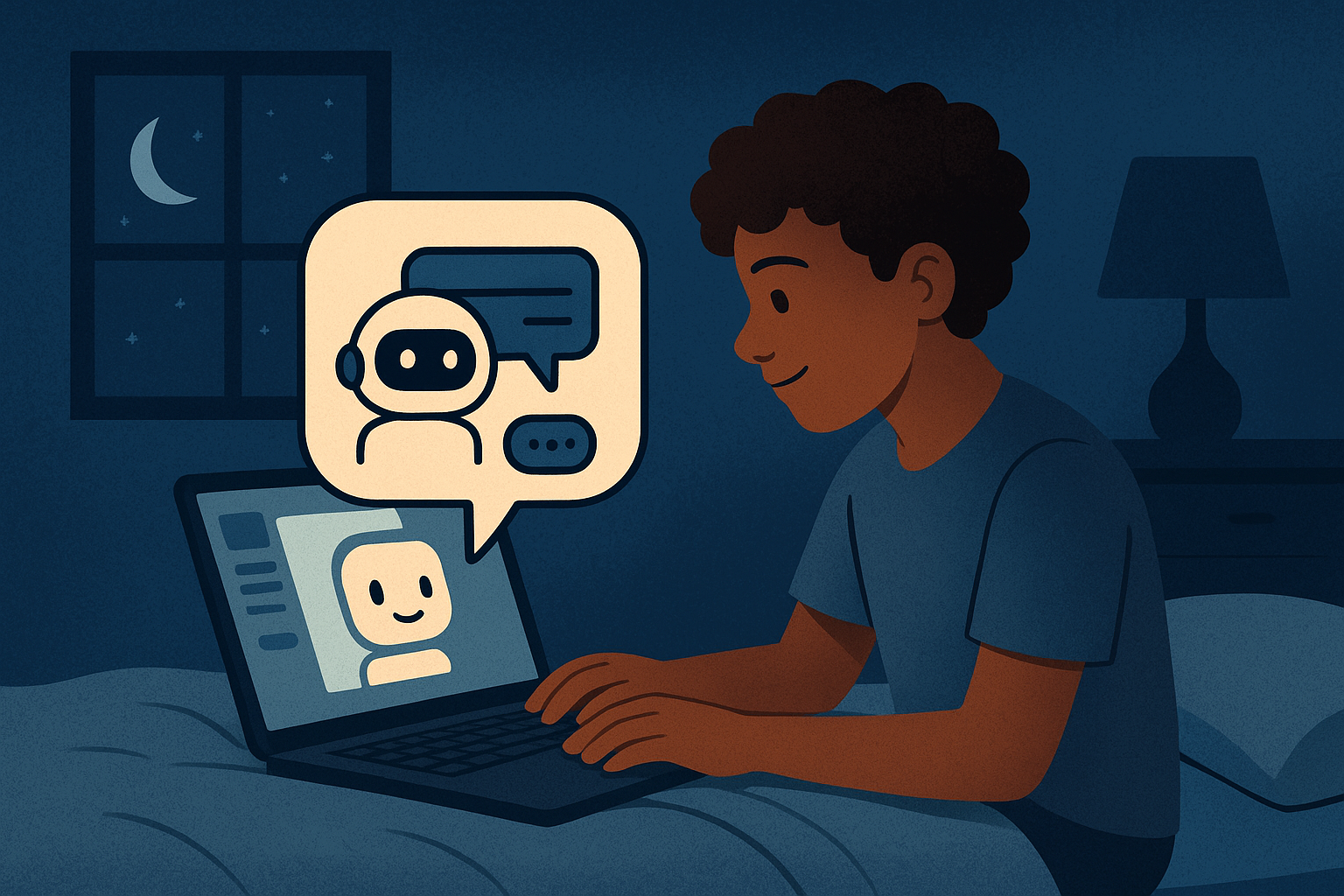
Is AI Becoming Your Child’s Best Friend? Spotting the Comfort Trap Early
Esther Kanja
Author
Aug 15, 2025
Published
It’s midnight, and your teen is curled up in bed, fingers flying over the keyboard. But they’re not texting a classmate or calling a friend. They’re chatting with an AI.
It listens, it replies instantly, it never interrupts, and somehow, it always understands. There are no awkward pauses or judgment, but just a perfect and constant companionship. At a glance, this might feel like a safe and even positive outlet.
After all, it’s better than isolation, right? But when the “friend” your child relies on is an algorithm designed to adapt to them perfectly, you have to ask, “What will happen to your child’s ability to navigate the beautiful, messy imperfection of real human connection?”
Learn how to spot the comfort trap when AI replaces real friendships. Here are practical tips to guide your teen toward balanced, healthy connections.
The Seduction of Perfection
Human friendships require patience. They involve misunderstanding, waiting for your turn, negotiating different moods, and sometimes sitting in silence. They make you think about another person’s perspective even when you disagree. AI takes all of that away.
It shapes itself around your mood, your language, and your preferences until you forget what it’s like to adjust for someone else. Over time, this “perfect” feedback loop creates a kind of comfort zone for you that’s dangerously easy to stay in. Real conversations, with all their unpredictability, begin to feel exhausting to you.
When Comfort Turns into a Cage
The more your child retreats into AI companionship, the less practice they get in reading non-verbal cues, handling conflict, or managing the discomfort of not being instantly understood.
These micro-skills, like waiting for a reply, apologizing when wrong, and standing your ground respectfully, are the building blocks of social resilience. Without these skills, your teen stepping into the real world will feel intimidated.
The AI becomes a comfort cage, offering safety at the cost of your child’s growth. What begins as harmless convenience can quietly dull the very skills your child needs to sustain meaningful human relationships.
AI as a Supporting Role, Not the Star
You don’t need to cut AI out of your child’s life completely. It can be a brilliant tool for brainstorming ideas, practicing conversations, or exploring new perspectives. But it must remain in the background and not take center stage.
Pair your child’s AI interactions with real-life connections; encourage meet-ups, group projects, phone calls, and even moments of boredom where your child has to think, wait, or simply be. That balance ensures your child stays connected to the unpredictability that makes human bonds so rewarding.
Why Imperfection Matters
The beauty of real friendships lies in their flaws. The awkward pauses, the offbeat jokes, the times you disagree and then laugh about it later—these moments shape empathy, patience, and adaptability.
AI can simulate empathy, but it can’t truly feel it. And without the friction of difference, relationships lose the very thing that makes them real.
AI should remain a helpful companion, not a replacement for the human connections that help children grow. Because in the end, it’s the unpredictable, imperfect, wonderfully alive conversations that make us all feel truly understood.
Take a moment this week to notice how your child balances digital comfort with real-life connection. A small conversation today could make all the difference for your child’s tomorrow.
Check out our next blog post for more strategies on helping your child build resilience in a tech-driven world.

